“Happyculteur: a person who makes a living from the small pleasures of life.”
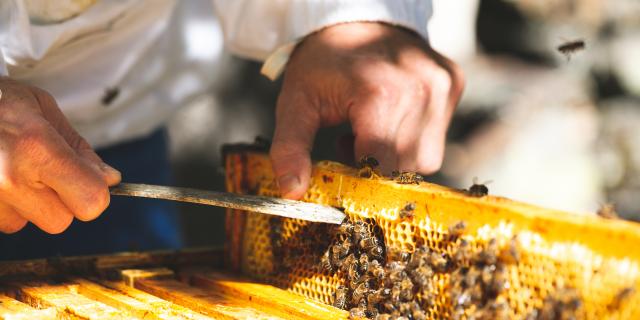 Greg Terra Photo Miellerie D'aure Aragnouet 141021 4
Greg Terra Photo Miellerie D'aure Aragnouet 141021 4When Julien VERNARDET set up his beekeeping farm in the small mountain village of Aragnouet, in the Aure valley, he made the choice of launching into the organic production of mountain honeys. To do so, he has deliberately teamed up with the black bees of the Pyrenees. An endemic and more resistant species, they are wilder, more aggressive and less productive. Neglected by the vast majority of beekeepers in favor of more productive species, black bees now account for just 10% of the honeybee population in France.
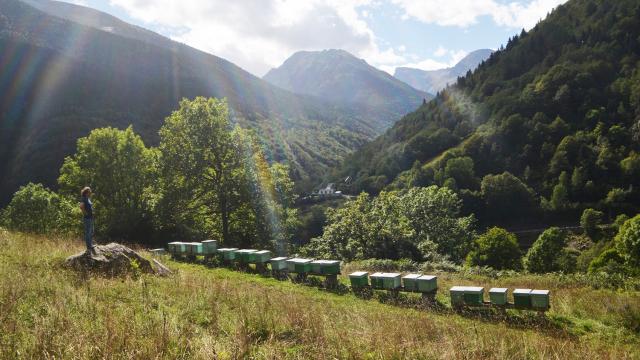 Honey of the earth ©bbboubin Un-rucher-au-Ticot-1
Honey of the earth ©bbboubin Un-rucher-au-Ticot-1The Aure honey house has 200 hives scattered between the village of Izaux, at 700 m altitude, and Cap de Long, at 2200 meters. The ambient temperature of a hive must always be maintained between 35 and 37°. It’s heated by the bees’ wingbeats, so I understand better why one hive can house over 60,000 bees.
Bees feed only on honey and pollen. Julien therefore ensures that they always have a sufficient supply of honey, and voluntarily limits his pollen harvest, deposited by the foragers each time they pass through a trapdoor installed at the hive entrance. Finally, to combat disease, the bees cover the inside of their hive with propolis. A natural antibiotic that they gather from the buds of certain trees.
Reluctant to the phenomenon of “organic” put to all uses, I was rather reserved as to the interest of producing such a honey. I was wrong.
Julien explained to me that to protect his foragers from parasites (including the aptly-named “varroa destructor”) and other diseases, he had renounced antibiotics and other chemicals in favor of using only organic acids. He was also careful to set up his apiaries in places where bees do their nectar business by foraging on still preserved wild flora.
These choices enabled him to obtain “Agriculture Biologique” certification, which is subject to at least one inspection a year, and to be labelled “Esprit Parc national”.
.
 Honey daure ©bboubin bees zoom
Honey daure ©bboubin bees zoom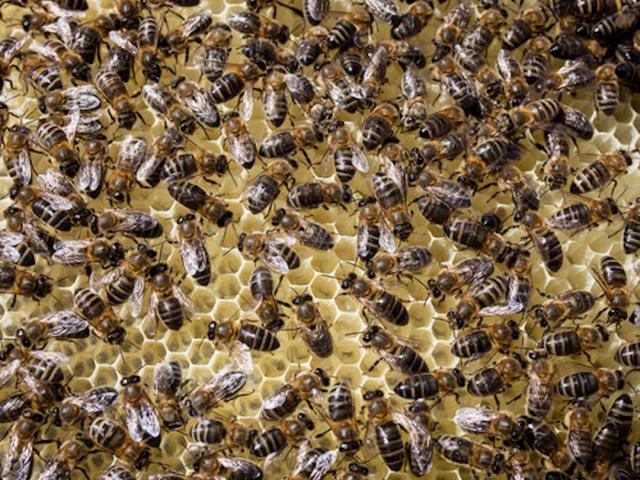 Honey ©bbboubin bees alveolus
Honey ©bbboubin bees alveolus Miel d'arure ©bboubin Julien-veille-à-lextration-naturelle-des-parasites
Miel d'arure ©bboubin Julien-veille-à-lextration-naturelle-des-parasites Daura honey ©bbboubin Different-rupes
Daura honey ©bbboubin Different-rupes Honeydew ©bbboubin Trappe-à-Pollen
Honeydew ©bbboubin Trappe-à-PollenIn spring, the beekeeper has to deal with the queen’s desire for independence and the desire of some of the bees to create a new colony. Julien anticipates this natural swarming so as not to see his precious foragers vanish into thin air. So he installs the queen and some of the bees in a new hive. A new queen then naturally takes her place in the old hive.
Transhumance of bees
As a mountain beekeeper, winter weather conditions force Julien to transhumance his high-altitude hives. He takes them up to the summer pastures in spring and brings them down again at the end of summer. This transhumance takes place at night, the only time when the bees can rest. Another constraint: snow. It’s not uncommon in winter for some apiaries to be covered in snow. As the bees don’t hibernate, Julien has to provide snow-clearing services, sometimes on snowshoes, to ensure their survival.
Every season its own honey
For me, as much as for 95% of the population, honey … is honey. Big mistake. The taste of honey varies with the seasons and Mother Nature’s good will. This is where the location of the apiaries is essential. In the lower valley, the taste of honey will be dominated by chestnut, acacia or lime. In the upper valley, rhododendron, wild raspberry or Pyrenean heather predominate. The taste of the honey thus varies according to the time of harvest and the blossoming of the surrounding flora.
Intentionally limited production
Given demand, Julien could easily double his production of mountain honeys. However, he limits his annual production to 20 kg per apiary (which includes around 25 hives), i.e. nearly 4 tonnes. He explains this by the time he devotes to his hives and his desire to preserve the quality of his nectar. Honey is harvested in spring, summer and autumn. Julien collects the honey-filled frames from the supers and places them in a centrifuge. He then extracts the nectar cold to avoid any alteration of its natural character.
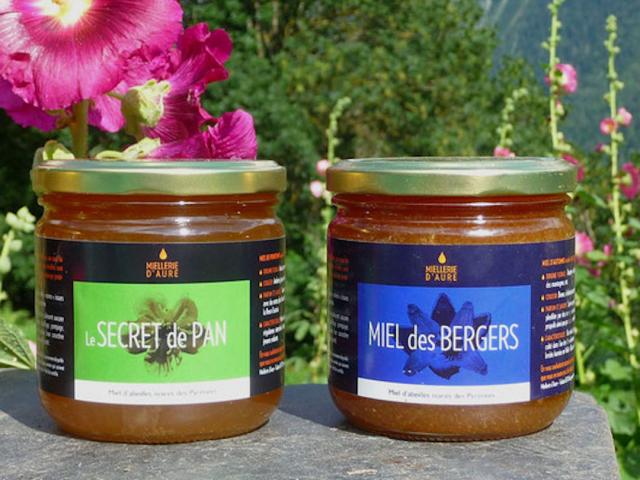 Honey ©bbboubin honey in jars
Honey ©bbboubin honey in jars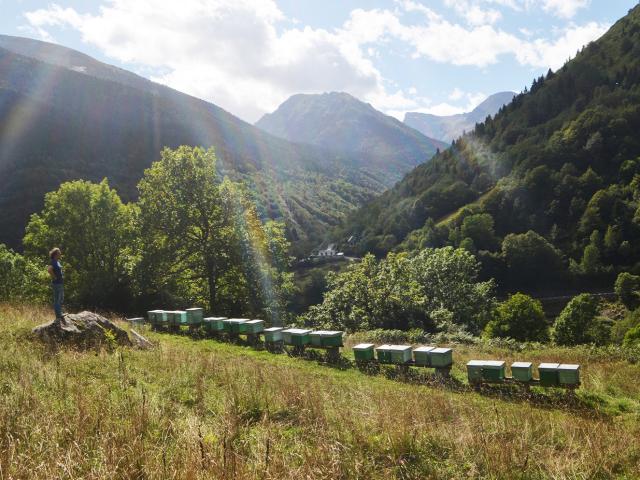 Honey of the earth ©bbboubin Un-rucher-au-Ticot-1
Honey of the earth ©bbboubin Un-rucher-au-Ticot-1The meillerie d’Aure’s organic production includes a wide variety of honeys, aromatics, pollens and propolis, and I warmly invite you to meet this singular beekeeper.
Julien is present at the Saint-Lary Soulan market every Saturday morning. You can also visit his bee farm, located near the Aragnouet town hall, or discover his products at the Maison du Patrimoine de Saint-Lary Soulan.